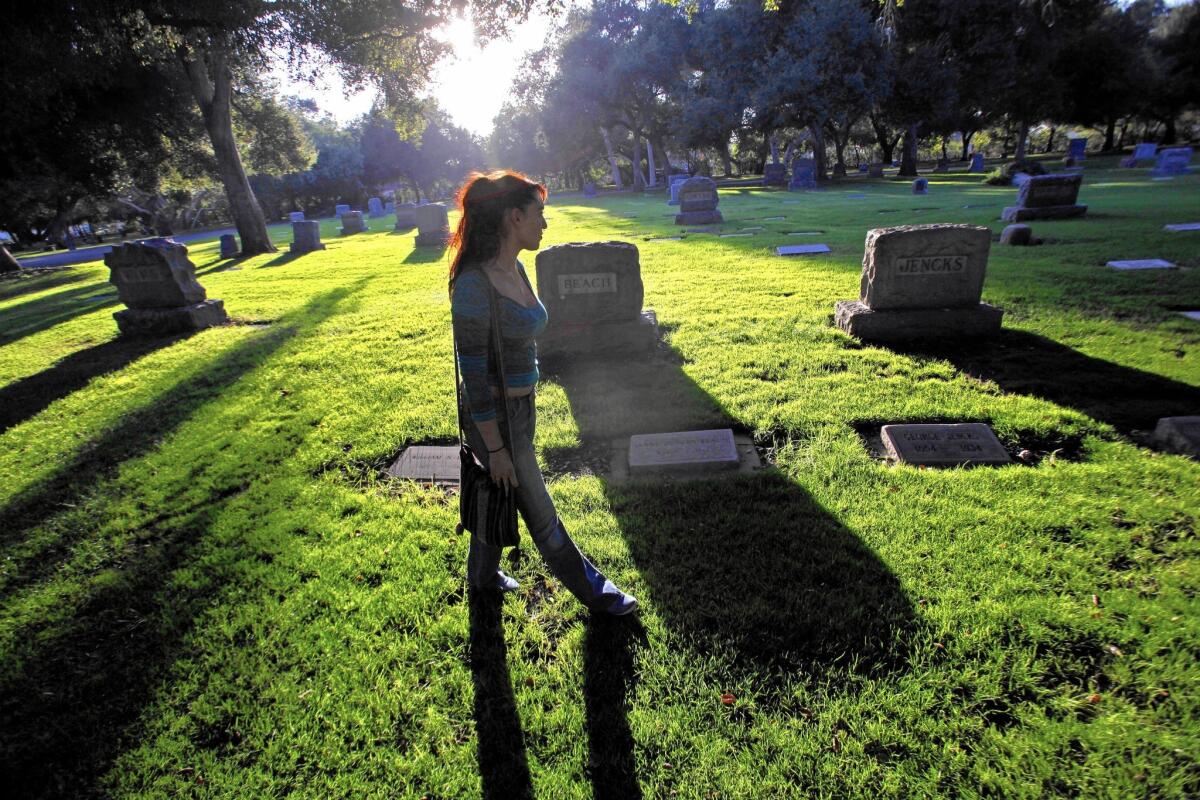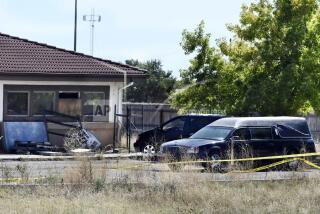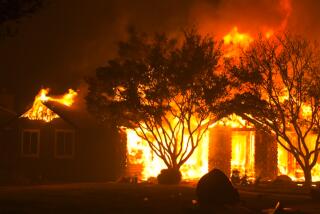Know your rights when dealing with a funeral home

More than a quarter of 100 funeral homes visited by investigators failed to meet federal price-disclosure requirements, the FTC disclosed last week.
Undercover investigators visited 11 California funeral homes last year to make sure prices charged to grieving families were disclosed upfront, as required by federal law.
Nearly two-thirds flunked the test.
This was an eye-opening finding for Bob Achermann, executive director of the California Funeral Directors Assn.
“More than half the homes visited. I can’t believe the number is so high,” Achermann told me. “It’s kind of amazing.”
Federal Trade Commission investigators visited 100 funeral homes in six states as part of random inspections conducted annually since 1996.
More than a quarter — 27 facilities — came up short in meeting federal price-disclosure requirements, the FTC disclosed last week.
And funeral homes in California had the worst record of noncompliance. Seven of 11 randomly picked Bakersfield-area funeral homes failed to disclose prices adequately for caskets and other services.
“That was very striking,” said Lois Greisman, associate director of the FTC’s division of marketing practices. “It’s terribly disturbing.”
The agency’s report serves as a reminder that even though funeral homes play a highly sensitive role at a time when many people are at their most vulnerable, not all establishments place the interests of consumers first.
It also highlights the need for people to be familiar with their rights when it comes to decisions surrounding the death of a loved one to avoid being taken advantage of.
“There’s nothing more horrible than to go through the emotional experience of arranging a funeral and to come out with more debt than you can handle,” Greisman said.
Elsewhere, disclosure problems were found at three of 29 funeral homes visited in Westchester County, N.Y.; five of 15 homes in Seattle; five of 16 homes in northwestern Arkansas; four of 13 homes in Annapolis, Md., and three of 16 homes in St. Louis.
“There will always be bad actors in every profession,” Achermann said. “I’d like to think most members of our association follow the rules.”
The funeral industry has long been scrutinized for preying on people who, amid their grief, may not be in the best position to make wise or well-informed decisions.
Questions were raised long ago by muckraking journalist Jessica Mitford in “The American Way of Death,” her 1963 expose of methods used by funeral homes to fleece people with costly and unnecessary services.
She showed in painful and even humorous detail how funeral homes manipulated next of kin into high-priced options that constituted “a huge, macabre and expensive practical joke on the American public.”
Subsequent regulations at the federal and state levels were intended to impose much-needed standards of practice and transparency on the industry. But problems persist.
I spoke the other day with South Gate resident Evelina Barajas, 47, whose mother died last May from complications related to Alzheimer’s disease.
As Barajas was preparing for a wake, she said, a call came from Rosecrans Funeral Home in Paramount, which was holding her mother’s body.
“They said they buried my mother by mistake,” Barajas said. “They exhumed her body the next day, but they refused to say how this happened or how long she was in the ground.”
She said evidence of the body having been buried and dug up could be seen at the memorial service and that the family’s wake ended up being a traumatic experience.
Barajas is now suing the funeral home for emotional distress. A trial is scheduled for next May. A lawyer for Rosecrans declined to comment, citing privacy reasons.
The median cost of a funeral, including a metal casket, is $7,045, according to the National Funeral Directors Assn.
Roughly half of dead people in this country are buried and half are cremated. By 2030, the association estimates, 70% of the dead will be cremated. The figure already is almost that high in California.
About 86% of U.S. funeral homes are privately owned by families, individuals or closely held companies. The rest are run by publicly traded firms.
State laws relating to the funeral industry are more comprehensive than federal requirements. For example, states set casket standards and cremation procedures.
The FTC’s Funeral Rule applies primarily to ensuring that consumers receive the information they need to make informed decisions.
It requires that funeral homes clearly specify the cost of all services, which can include planning, permits, death certificate, storage of the body and coordination with the cemetery or crematory.
Funeral directors must give price information by phone if you ask for it and inform you that you can buy a casket or cremation urn elsewhere.
They must disclose that a casket can be a simple wooden box available for a few hundred dollars, rather than the thousands charged for top-of-the-line models. And they must inform clients that no casket is required for a cremation; a cardboard container will do.
California’s 1,038 licensed funeral homes are overseen by the state Cemetery and Funeral Bureau. Its rules and tips for consumers are spelled out on the bureau’s website.
“The bureau believes that an informed consumer is an empowered consumer,” said Monica Vargas, a spokeswoman for the state agency.
Vargas said the most common violations of state rules include casket prices that don’t match actual costs and failure to include all caskets on the price list.
In that latter case, I’m guessing that the less-expensive models go unmentioned unless someone thinks to ask.
It’s not the most appealing of topics, but experts say it can be very smart for people to make their own funeral plans — well ahead of their deaths, that is. That way, you ease the burden for loved ones and you have the satisfaction of knowing how you’ll shuffle off this mortal coil.
Achermann pointed out that budget-minded consumers can pick up a discount casket from Costco.
“But I wouldn’t want to do it,” he said. “I wouldn’t want to have to keep it my garage for later.”
David Lazarus’ column runs Tuesday and Fridays. He also can be seen daily on KTLA-TV Channel 5 and followed on Twitter @Davidlaz. Send your tips or feedback to david.lazarus@latimes.com.
More to Read
Inside the business of entertainment
The Wide Shot brings you news, analysis and insights on everything from streaming wars to production — and what it all means for the future.
You may occasionally receive promotional content from the Los Angeles Times.











